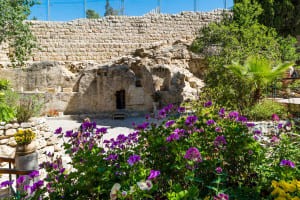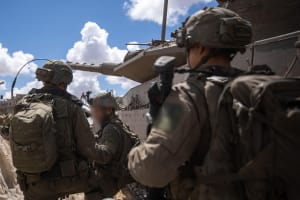IDF strike near Beirut kills senior Hamas-affiliated terrorist as Israel continues aggressive ceasefire enforcement
Numerous Hezbollah terrorists were killed by Israeli strikes in recent days

Without much fanfare or international media attention, Israel has aggressively hunted terror threats in Lebanon in recent weeks, striking terrorists affiliated with Hezbollah, Hamas, and other hostile groups who it says acted against the terms of the ceasefire.
On Tuesday, an Israeli strike killed Sheikh Hussein Atwi, a senior member of the Sunni Al-Jama'a al-Islamiya organization, which is closely linked to Hamas and which took part in the fighting against Israel during the war.
The strike was unusual as Atwi’s car was hit near the village of Baawerta, less than 10 kilometers (6 miles) from the outskirts of Beirut. Most Israeli strikes in recent weeks hit targets in southern Lebanon.
Atwi was reportedly targeted by Israel several months ago but survived a first attack. He was a senior leader of the Fajr Forces, the military arm of the al-Jama’a al-Islamiya group, which is ideologically close to the Muslim Brotherhood and Hamas.
بالصور: غارة إسرائيلية استهدفت سيارة في #بعورتا قرب #الدامور pic.twitter.com/6FtI7lHdp4
— Voice of Lebanon 100.3 100.5 (@sawtlebnan) April 22, 2025
"Over the years, he carried out rocket attacks, coordinated terrorist infrastructure on the northern front, and advanced attempts to infiltrate into Israeli territory," the IDF stated. "In addition, he was responsible for directing terrorist attacks against Israelis around the world."
Tuesday’s strike capped off a week where the IDF carried out at least two strikes per day in Lebanon, except for Monday.
On Sunday, the IDF said it struck “several launchers and a military infrastructure site” in the Nabatiyeh area, and eliminated Hussein Ali Nasr, deputy head of Hezbollah’s Unit 4400, as well as its head of engineering, in the town of Odaisseh.
Nasr “collaborated with Iranian operatives to facilitate the transfer of weapons and funds into Lebanon, including through the Beirut International Airport,” the IDF said.
Hussein Ali Nasr, also known as "Abu Ali Hassan", from the village of Haruf, deputy commander of Hezbollah's Unit 4400, was killed today in an airstrike while driving his vehicle on the road between the villages of Al-Charqiyeh and Kaouthariyet El Saiyad, southern Lebanon.
— Israel-Alma (@Israel_Alma_org) April 20, 2025
Nasr… pic.twitter.com/KFKXr9U1H0
On Friday, an Israeli strike near Sidon killed Muhammad Jaafar Abdallah, responsible for the deployment of Hezbollah’s communication systems throughout Lebanon, and another strike killed an unnamed Hezbollah terrorist in the area of Ayta al-Sha’ab.
According to the Israeli Alma Research Center, a security think tank focusing on the north, the increase of airstrikes was caused by "incidents of fire from Lebanon towards Israel in December 2024 and March 2025."
According to its analysis, Israel has carried out 313 airstrikes in Lebanon since the start of the ceasefire at the end of November. "46% occurred in the area south of the Litani River, where Hezbollah continues to engage in significant activity, including reconstruction efforts, reorganization, strengthening its capabilities, and renewing operational readiness against Israel."
"Approximately 53% of the airstrikes were conducted north of the Litani and in the Beqaa region, targeting attempts to restore infrastructure, transport, and smuggling of weaponry," the center wrote.
In reaction to the number of Israeli strikes these past days, Lebanon’s parliament speaker Nabih Berri on Monday called the new Commander of the Lebanese Armed Forces, General Rudolph Haykal, to receive an update on Israel’s actions.
An analysis of Israeli airstrikes in Lebanon from November 27, 2024 (the start of the ceasefire) until April 18, 2025, shows that out of 313 airstrikes, 46% occurred in the area south of the Litani River, where Hezbollah continues to engage in significant activity, including… pic.twitter.com/GzccsfZ8Xe
— Israel-Alma (@Israel_Alma_org) April 21, 2025
Berri, who is an ally of Hezbollah, called Israel’s strikes a blatant attempt to disrupt Lebanon's serious commitment to the ceasefire, arguing it implemented its side of the deal while Israel continues to violate Lebanon's sovereignty and the decisions of international law.
Under the terms of the ceasefire, Hezbollah was to completely withdraw its presence from southern Lebanon and begin a process of disarmament, neither of which has occurred so far.
Israel was to withdraw from Lebanese territory, but has kept forces on five strategically important hills along the border to guarantee security for the returning Israeli residents of the border areas.

The All Israel News Staff is a team of journalists in Israel.














